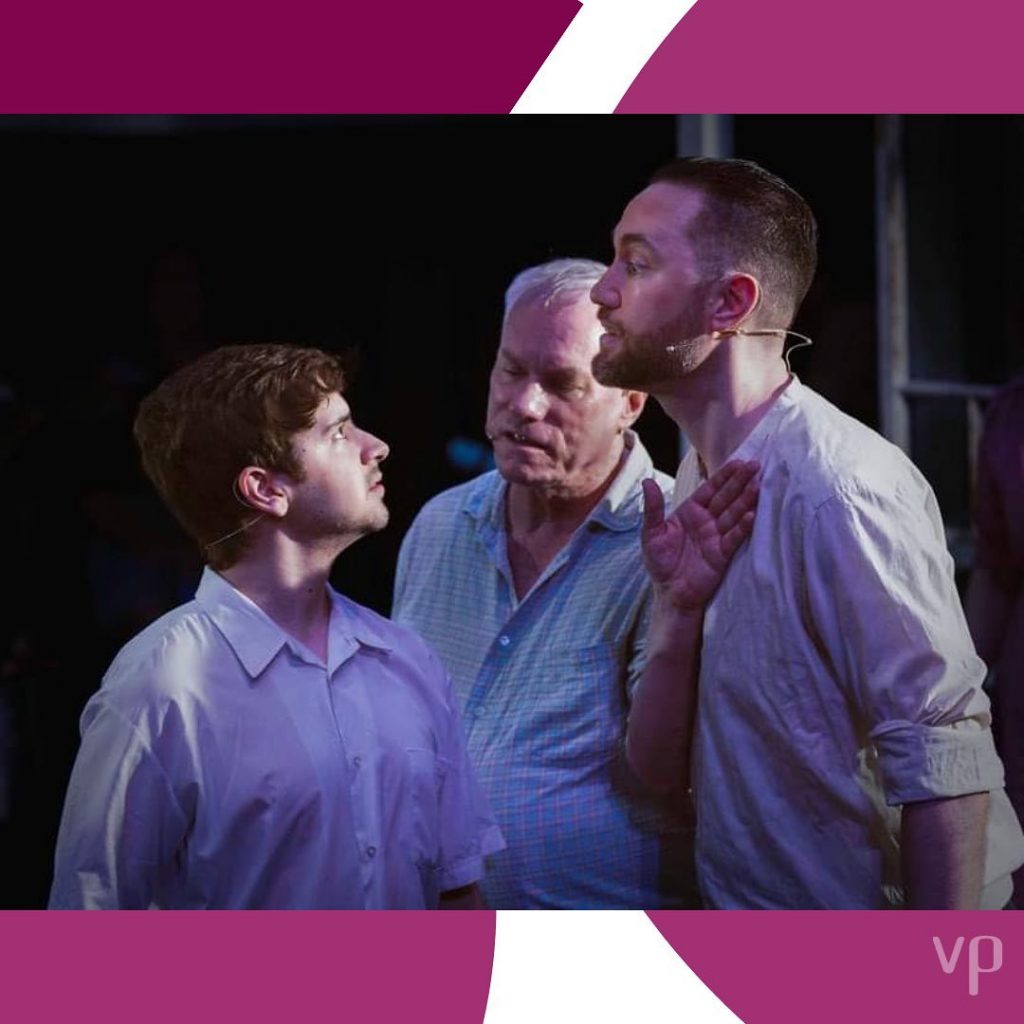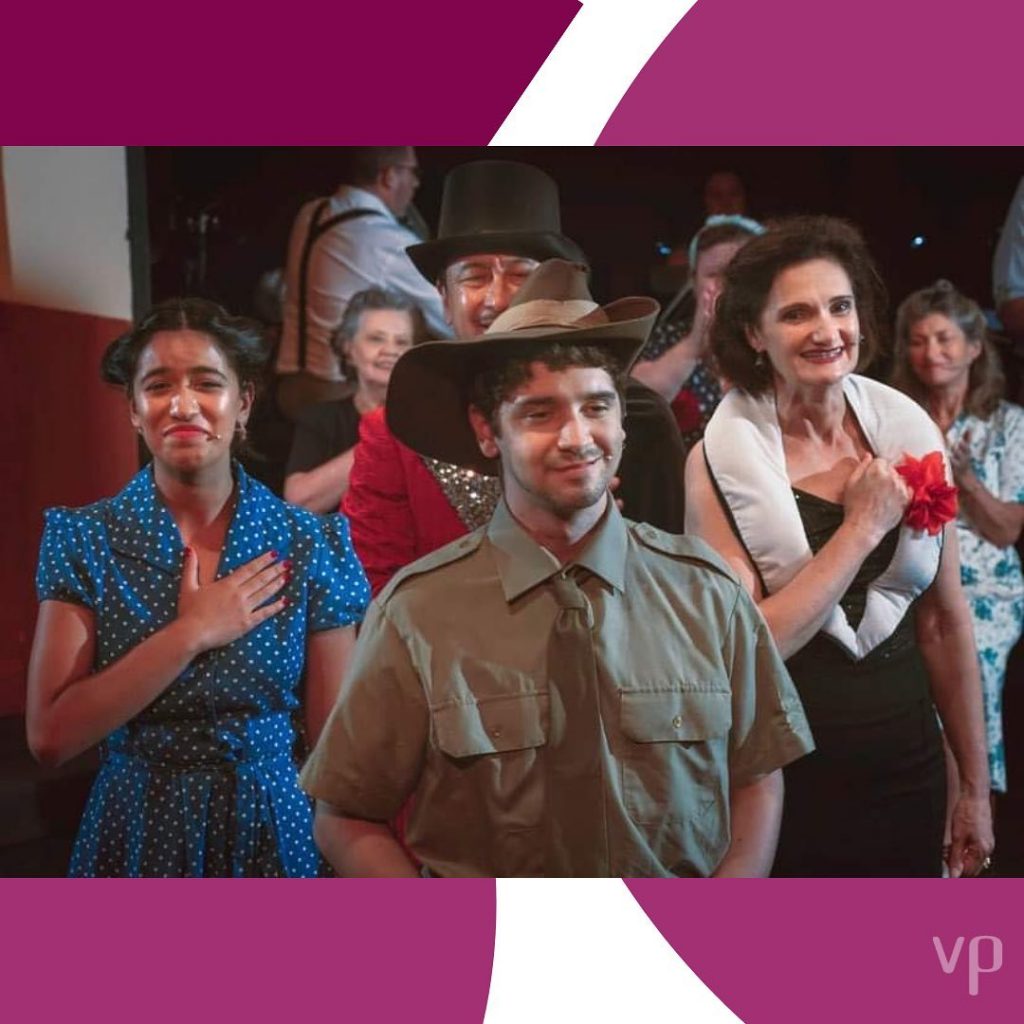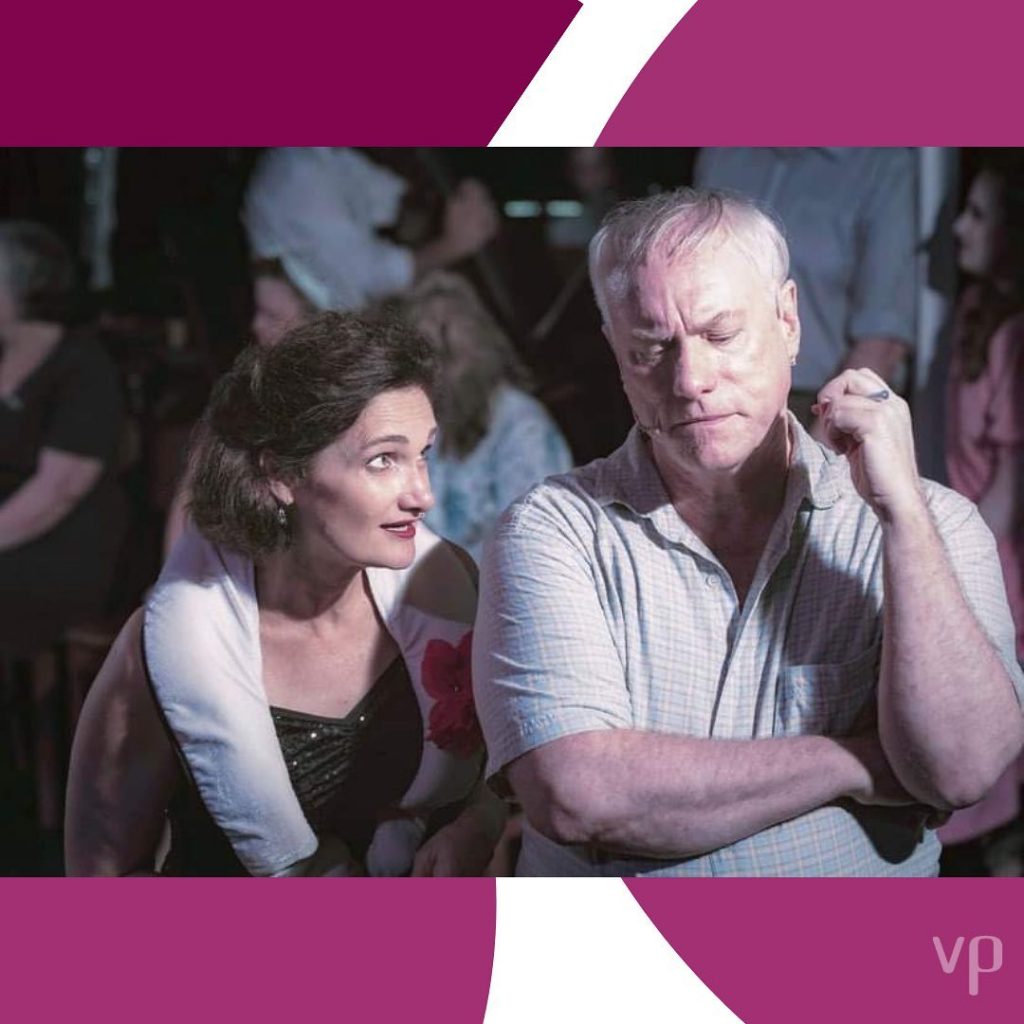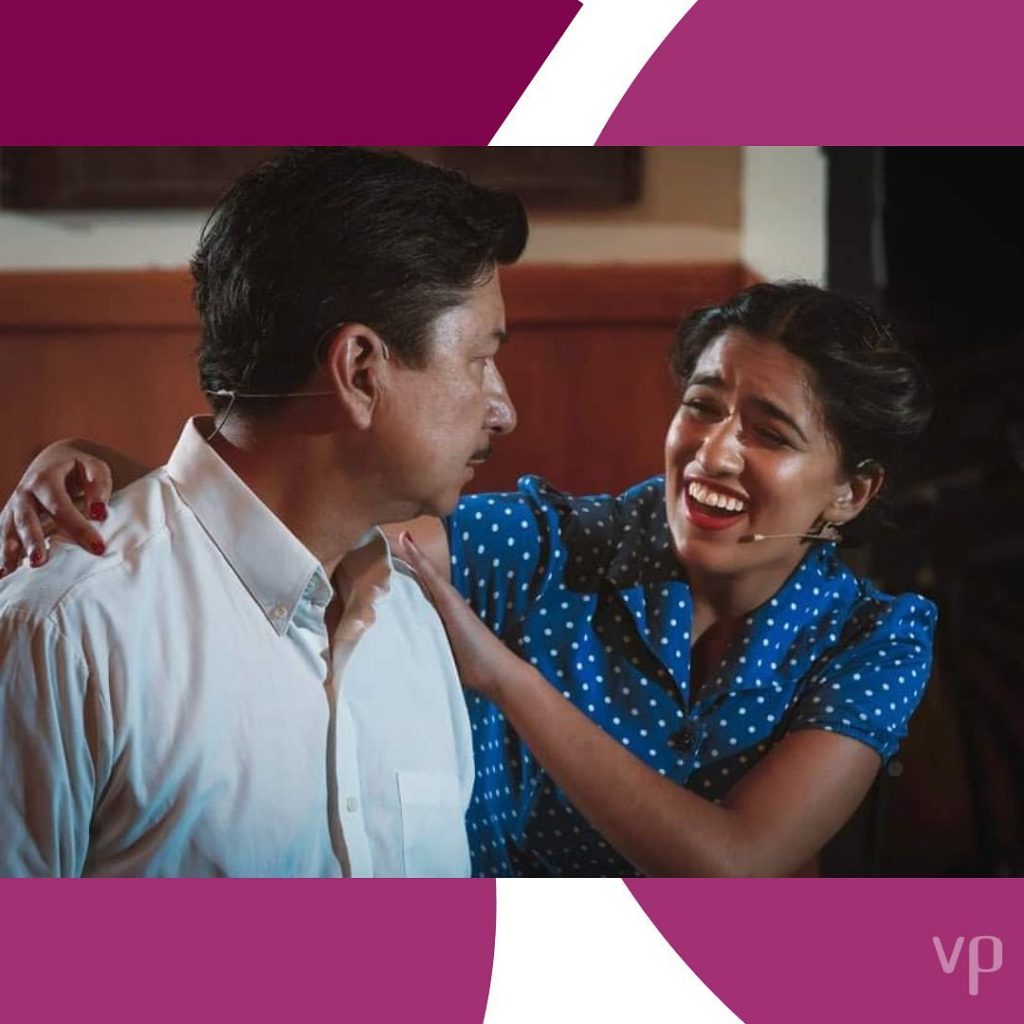
‘Summer Rain’ // Villanova Players
‘Summer Rain’ was Australian.
Meat pies, chucking a sickie, ‘Summer Rain’; one is no more Australian than the other, but only one can be seen on stage at the charming Ron Hurley Theatre this November. Presented by the Villanova Players, one of Queensland’s longest-standing community theatre groups, ‘Summer Rain’ sees a cast of the company’s members take to the stage in their final production of the year.
Set on Boxing Day in a small country town, emotions run rampant as the locals’ clash with the stranded Slocum Family and their travelling tent show. “‘Summer Rain’ reminds viewers of a period in Australian history, immediately after World War II and at the end of a long drought when things seemed without hope. Then, as now, human relationships are what sustains individuals and society,” says Director Helen Ekundayo regarding the storyline. It is these conflicting relationships and the multi-dimensional characters that make the story of ‘Summer Rain’ so compelling. While the plot may be set some 76 years in the past, the tensions between families, couples and outsiders are still thematically relevant to this day.
The crew, alongside director Ekundayo, did an adequate job bringing this performance to life. Lucy Moxon constructed a well thought out set with two pieces that were easily recognisable as the four key locations of the story. Lighting design by B’Elanna Hill was simple and guided the audiences’ attention to the main action as needed. Coloured LEDs were used well to distinguish the sweltering heat from the downpour that caused the localised flooding that stranded the Slocum family.
Live music from Jess Hall (Flute), Monique Mathews (Reeds), Laura Guiton (French Horn), Phil Kan (Double Bass) and Jerome Fitzgerald (Percussion) amplified the musical element of the show and provided a strong backing to the artists on stage. The sound design was, unfortunately, a little off-putting at times as the audio system was not great, with crackling and sound loss a constant issue throughout. There was also a lack of consistency with the use of microphones and amplified sound being used only some of the time, but not consistently.
Desley Nichols’ costume design, for the most part, was pretty good, with the vast majority of the pieces appearing relevant to the period. This wasn’t always the case though, and some of the pieces were a little too modern.
It is challenging to provide commentary on directing a fifteen-strong cast on a small stage without having done so oneself, but there are certain elements that need to be mentioned. The space itself was used well and Ekundayo always ensured the stage was filled with action to keep the audience engaged in the story. Blocking and scene transitions were clean and understandable and there were few moments of silence or stillness. The choreography, however, was a hard pill to swallow. Allowance must be given for the fact this is a community theatre production and the staging area was quite small, but as a whole, the dance numbers were basic and uninteresting. Utilising the stronger dancers in the group to create one commanding number would have given the show a more elevated feel and made it a little more memorable.
While certain elements of ‘Summer Rain’ lacked depth, the same can not be said for the majority of casting choices, with key roles filled with talented and vocally skilled performers. Priya Shah shone as Joy Slocum and delivered one of the best all round performances, blending powerful vocals with a sweet and balanced character portrayal. The same can be said for the bubbly and bright Cathy Doyle, who was portrayed flawlessly by the talented Lillian Dowdell. She was strong in voice and encapsulated the role of the sixteen-year-old who was so eager to break free from her father’s grip with graceful ease. Similarly, Cecilia Girard played a torn Peg Hartigan and produced a three-dimensional character that was trapped between a rock and a hard place. She was a beautiful singer and a delightful actor to watch.
Nicholas Sayers presented a pleasant and romantic Clarrie Nugent and while he was vocally a fraction weaker than his counterparts, he produced a memorable performance. Nikolai Stewart delivered a commanding Johnny Slocum and his attraction for Peg seemed genuine and engaging. Leo Bradley was infuriating as Barry Doyle, which is exactly what the role required and Michael McNish embraced an oafish and comical Mick Hartigan.
Deidre Grace (Ruby Slocum), Peter Cattach (Harold Slocum) and Rhonda Wood (Madga Lazlo) produced consistent acting performances throughout but struggled vocally in comparison to other cast members. The ensemble and other supporting roles delivered OK performances as well and aided in the overall look and feel of 1940s Australia. When performing as an entire cast the musical numbers were powerful and harmonised well, but individual solos and duets often left a lot to be desired. With the exception of the key roles, it was evident that voice was not a strength for the majority.
Coming in at a fraction over three hours long, ‘Summer Rain’ is one of the longest musicals that has ever taken to a Brisbane stage, and at times was challenging to sit through. The cast and crew have worked tirelessly for months and it is not my intention to take away from their efforts at all, but as a whole, it lacked a certain element of finesse. In saying that, it is important to note that the target audience appeared to be skewed about twenty years my senior – at a minimum. While I may have been a fish out of water, the commentary I overheard on my way out of the Ron Hurley Theatre was remarkably positive and celebratory of a story well told. So don’t take this writer’s opinion with too much critique and check it out for yourself!
‘Summer Rain’ performs until Sunday, 28 November 2021 at the Ron Hurley Theatre. For more information, visit Villanova Players Theatre Company’s website.
Disclaimer: Cast / Production Members working on this show also work for Theatre Haus, but rest assured, we always take steps to ensure our reviews maintain their integrity and are free from bias.










